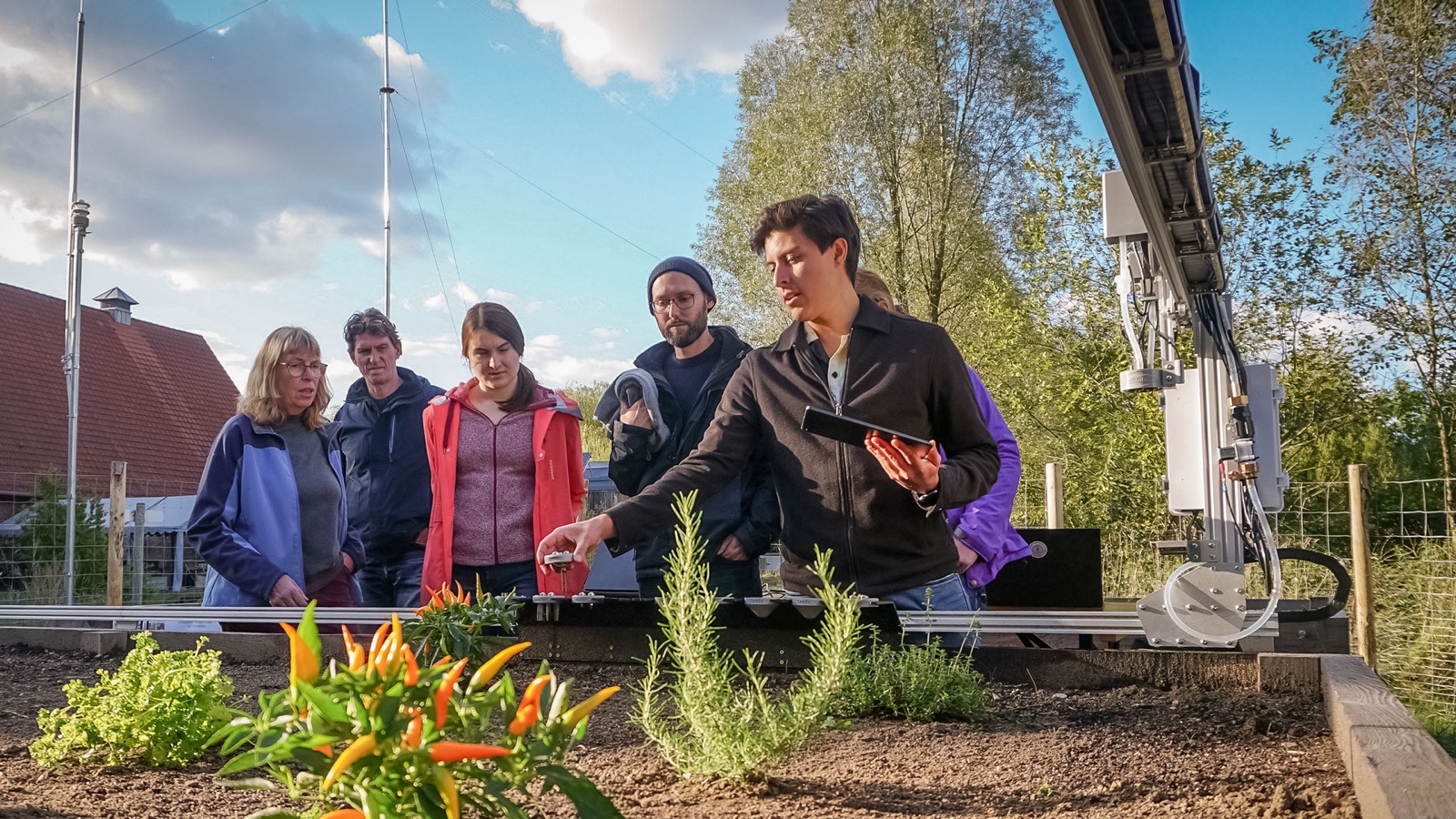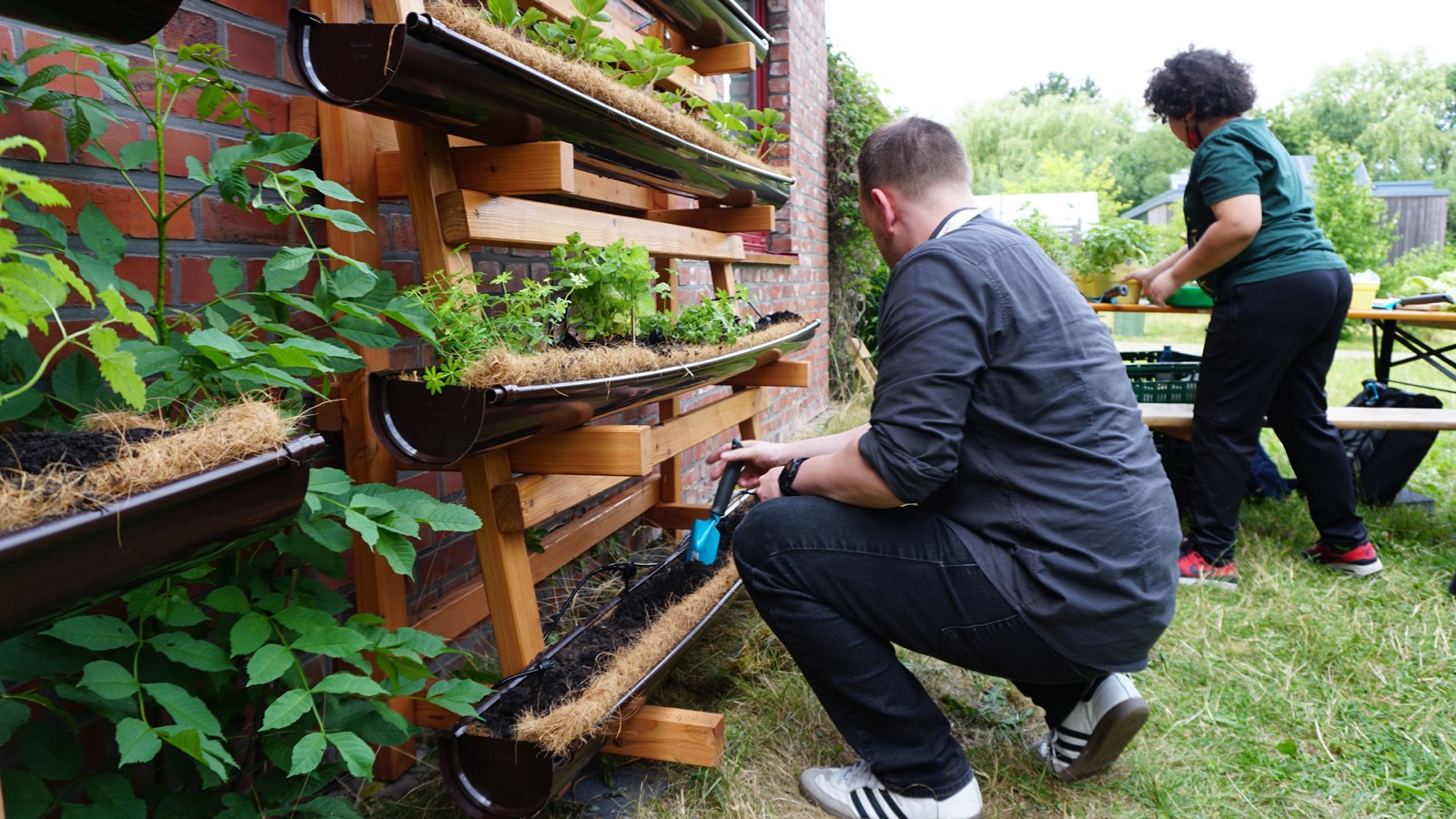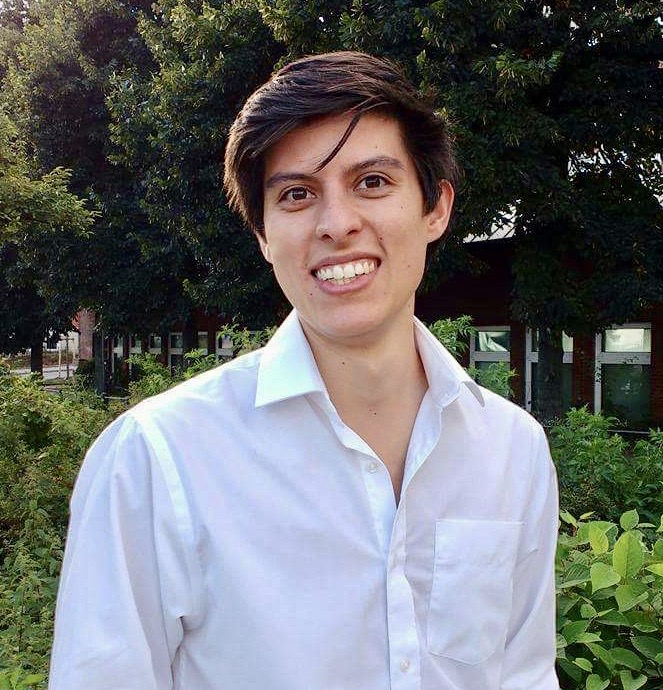According to various sources, the world’s population is expected to reach 9.1 billion by 2050 , about 20 percent more than in 2021. Of these 9.1 billion people, an estimated 70 percent will live in urban areas, up from 55 percent today. In contrast, levels of extreme poverty have declined over the past century, giving more people access to better and more diverse food options. Together with the expected increase in bio-based resources such as plastics or biofuels, agricultural production will need to increase by about 70 percent to meet global demand for raw materials and food.
Pilot projects in the field of open source agriculture
In the field of agriculture, we have launched two exciting projects together with the Helmut Schmidt University and the Climate Protection Foundation Hamburg, which are pilot projects for the field of open source agriculture.
As Fab City Hamburg, we are dealing with agriculture and life in urban and rural areas and exploring how we can contribute to more sustainability there with our knowledge, our skills and as a community.
Farm robot to cultivate raised bed at Karlshöhe Estate
The FarmBot in Hamburg shows how we can use open source hardware and artificial intelligence to grow plants smarter and harvest them more profitably. The FarmBot is an open source hardware product of the company of the same name based in the USA (California), Farm Bot - Source CNC Farming.
We want to put the “Farmbot Genesis XL 1.6″, which can cultivate an area of 18 square meters, into operation at the Karlshöhe estate in Hamburg Bramfeld. The first growing season will begin in 2023 and will be accompanied by various educational formats.
Artificial Intelligence & Machine Learning
At Fab City Hamburg, we believe that new technologies such as artificial intelligence (AI) and machine learning (ML), along with robotics and the Internet of Things (IoT) can help solve some of the challenges mentioned above.
However, for these technologies and their application to make sense, they need to become globally accessible and not just a privilege of agriculture in rich countries. This is the main reason why we decided to use an open source framework that allows the information to be easily shared and accessible to anyone:n who is interested. In addition, this allows for community-driven growth on a global scale, meaning anyone:r on the planet can freely contribute to the project and use it to democratize knowledge.
One of our proposals is to automate some of the most tedious and strenuous agricultural activities through AI/ML-based robotic systems, which would improve overall working conditions. For example, implementing an automated weed detection and removal system would allow farmer:s to focus on other potentially more important tasks, freeing them up.
Most modern AI and ML models used to solve image-related tasks require a significant number of examples to learn the desired visual patterns. The collection of the aforementioned examples are the so-called datasets. The size and quality of the datasets are crucial factors for the quality of the resulting AI/ML models.
Therefore, we will make some efforts to construct smart agricultural robotic systems within Fab City Hamburg. They will be very closely linked to the compilation of the open data sources needed for training and evaluation of the developed AI/ML models.

A small premiere
The first presentation for Fab City Hamburg members, project partners and the extended community took place on September 20, 2022 and was accompanied by workshops on urban agriculture, open source hardware and impact. The New Production Institute reported on it and there was great feedback from Andje Stamer, sustainability officer at Gut Karlshöhe. We are looking forward to the next steps!
Prototype development for Vertical Farming
As part of a workshop on vertical farming organized by HSU and the Arab-German Young Academy for Sciences and Humanities (AGYA), two prototypes were developed and built. The goal was to show that creating a vertical farming system is neither complex nor requires a lot of material or equipment. These two systems can be easily set up on a balcony, in a garden or even in one’s own kitchen. The outdoor version aims to show a way to reuse everyday materials that you’re likely to find in any home - like rain gutters and wood - to build a vertical farming system. In contrast, the indoor version shows a more technical option in using the facilities of a Makerspace or Fab Lab.
Vertical Farming
Vertical farming is an approach to growing crops and crops in stacked layers. It is often associated with highly complex indoor controlled environment farms that produce food on a commercial scale. These indoor farms aim to optimize plant growth with artificial light while minimizing the need for space, water and fertilizer compared to traditional outdoor farms. Most vertical farms use one of three soilless growing techniques, hydroponics, aeroponics, or aquaponics. However, there are also more traditional approaches that use soil, particularly in private, DIY-style outdoor systems. In general, vertical farming allows for a space-saving way to grow crops and produce food locally. This seems particularly interesting for city dwellers who often do not have space to grow their own vegetables conventionally and are therefore completely dependent on the food supply chain.










